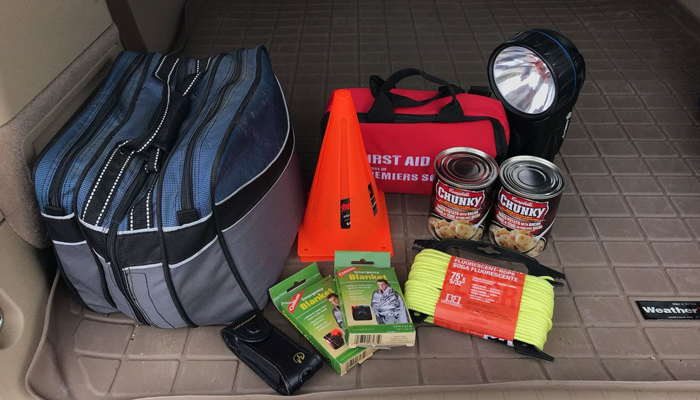Emergency Kits
Everybody can be more prepared for emergencies. Having an emergency kit is a great start.

To be prepared for any emergency, it is best to have an emergency kit in both your home and your vehicle. Watch this brief video to learn what items are best for each emergency kit type, or find a detailed list of the items below.
Basic Emergency Kit
- Water: two litres of water per person per day
- Non-perishable food: select items that do not require heat and/or water for preparation
- Manual can opener
- Flashlight and batteries
- Battery powered or wind up radio
- First aid kit
- Prescription medications (week supply, if possible)
- Infant formula, diapers and children's items
- Equipment required for people with special needs or disabilities
- Extra keys for house and vehicles
- Cash
- Copy of your family emergency plan
- Change of clothing and footwear
- Sleeping bags or blankets
- Garbage bags
- Toilet paper and other personal care items
- Basic tools
- Small fuel stove and fuel: Always follow manufacturer's directions. DO NOT use barbeques, fuel stoves or open flames indoors.
- Copies of personal documents, such as passports, birth certificates, insurance documents
- Candles and matches
* Update your kit and your emergency plan annually or if your family situation changes. Replace food, water, and batteries.
Vehicle Emergency Kit
- Bottled water
- Non-perishable food items
- Warm clothes and boots for every traveler
- Blankets
- Glow sticks (instead of candles)
- Flashlight and batteries
- Crank or battery-operated radio
- Small shovel
- Windshield scraper
- Booster cables
- First aid kit
- Safety cones
- Small toolbox
* Update your vehicle emergency kit for each season. Replace food, water, and batteries as required.